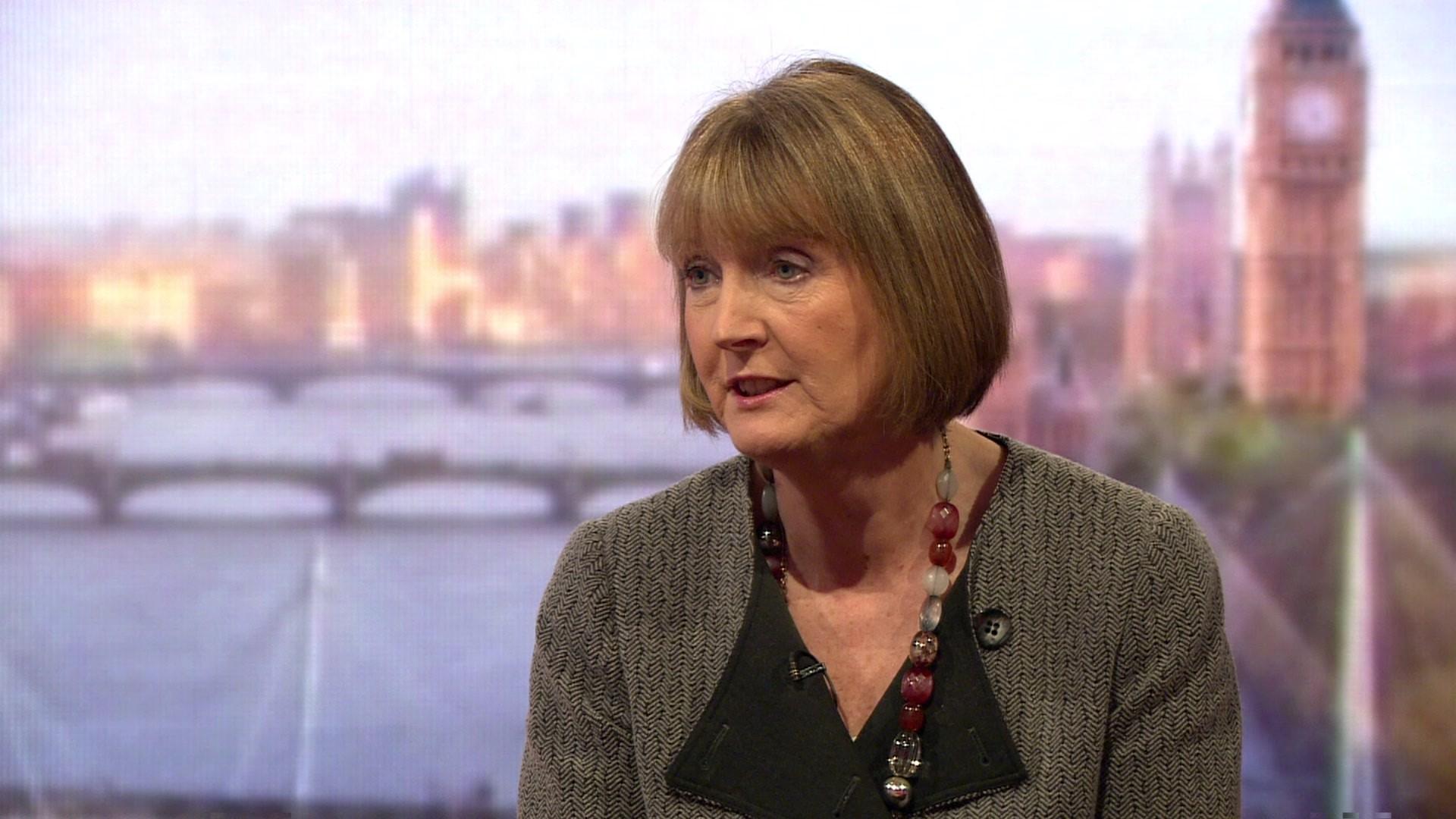David Cameron says EU summit is 'milestone' for reform plans
- Published
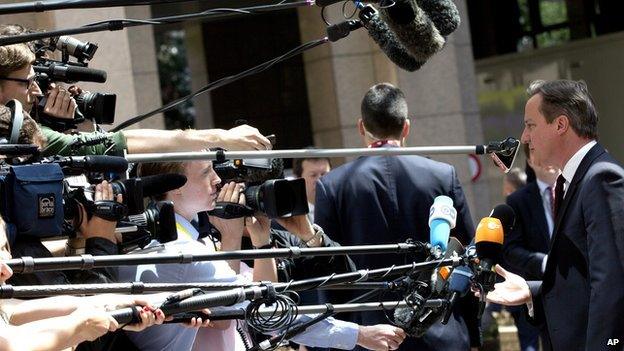
David Cameron spoke to the media as he arrived in Brussels
David Cameron says setting out his EU reform demands to a European Council meeting marks a "significant milestone" in his renegotiation plans.
The gathering in Brussels will be the first time his objectives have been collectively discussed by EU leaders.
Ahead of the meeting, Council President Donald Tusk warned the EU's fundamental values were "non-negotiable".
There will be limited time to discuss the UK plans, with the agenda dominated by the Greek debt and migrant crises.
Greece must repay a €1.6bn (£1.1bn) IMF loan by next Tuesday or face default, and the latest talks between Greek PM Alexis Tsipras and international lenders ended without agreement.
Eurozone finance ministers had hoped to finalise a deal, but will now discuss a plan proposed by creditors.
'Another step closer'
The summit's first "working session" and dinner will be dedicated to the Mediterranean migrant crisis, amid a difference of opinion over Europe-wide quota systems and following what Mr Cameron called the "totally unacceptable" sight of hundreds of migrants trying to board UK-bound vehicles at Calais.
At the end of the dinner, Mr Cameron will address the leaders about his planned reforms and referendum of the British public by the end of 2017.
The PM hopes this will pave the way for official negotiations to begin on the terms of the UK's EU membership.
He has not set out the full details of his negotiating aims but his priorities include restrictions to welfare entitlements, greater powers for national Parliaments and an opt-out for Britain from the principle of "ever closer union".
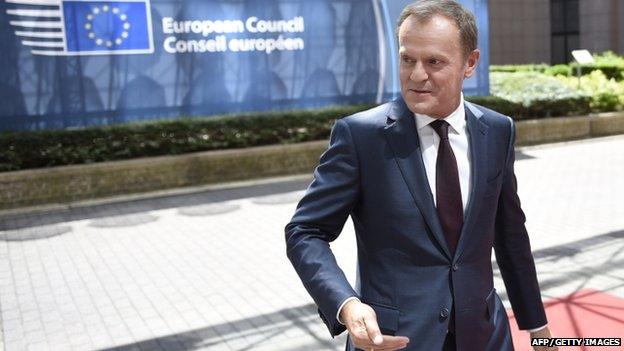
EU Council President Donald Tusk said the EU's fundamental values "are not for sale"
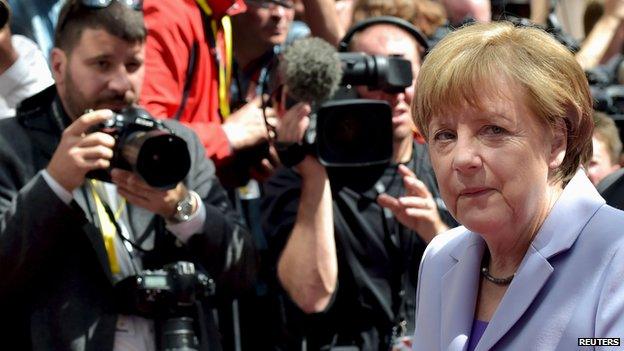
German Chancellor Angela Merkel held talks with Mr Cameron before the summit
As the leaders arrived in Brussels, European Council President Mr Tusk said Mr Cameron's concerns would be considered, "but only in a way which will be safe for all Europe".
He added: "Today we will start this process. However, one thing should be clear from the very beginning: the fundamental values of the European Union are not for sale and so are non-negotiable."
Speaking as he arrived at the summit, Mr Cameron said: "Today marks a significant milestone in the process of saying that it's right for Britain to have this renegotiation and this referendum to address the concerns that the British people have about Europe and to make sure the British people have the final say about whether we stay in a reformed European Union or leave."

Analysis
BBC political editor Nick Robinson
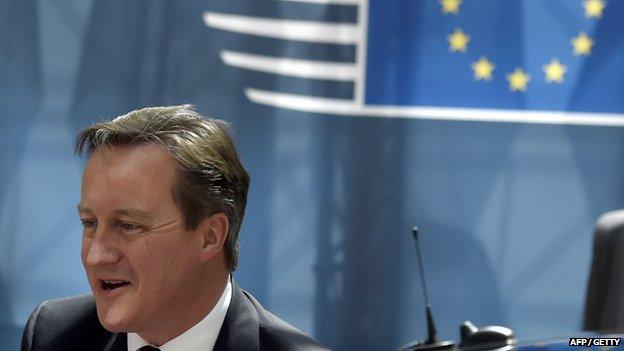
When you turn up for dinner it's polite to take a gift but when David Cameron shows up in Brussels tonight he won't be bearing flowers or chocolates.
What he'll hand over to his host to share with the 27 other guests is the "British problem". This is the important moment that it becomes the EU's shared problem.
Gone are the days when Europe's politicians and officials could kid themselves that if they waited long enough the British would change their mind or change their government.
They now know that, like it or not, there will be a renegotiation of the UK's membership of the EU followed by a referendum.

Speaking on BBC Radio 4's The World at One programme, UKIP MP Douglas Carswell said the EU project was "lurching from crisis to crisis".
"There's something existentially wrong with the whole European project, and things are coming to a head pretty fast," he said.
Former Conservative minister Damian Green cautioned against labelling every EU summit "a crisis summit" but added: "Clearly this is an important moment."
On the eve of the summit, Mr Cameron had talks with German Chancellor Angela Merkel in Berlin as part of his efforts to speak face-to-face with his European counterparts about his aims.
On Wednesday evening, during a state banquet for the Queen, who is visiting Germany, German President Joachim Gauck said the EU "needs Britain".
"We know that we need an effective European Union based on a stable foundation of shared values," he said.
"A constructive dialogue on the reforms Britain wants to see is therefore essential. As a good partner, Germany will support this dialogue."
However, French minister Emmanuel Macron has told the BBC the UK should not be able to cherry-pick aspects of EU membership.
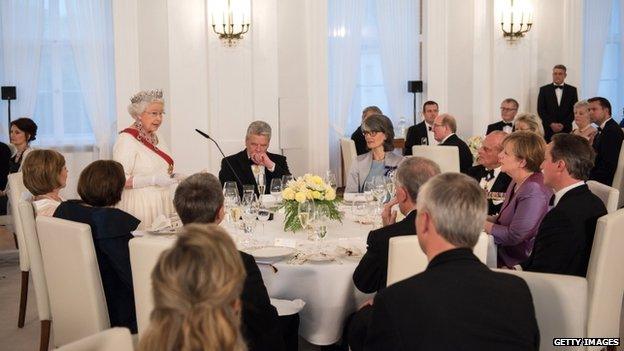
The Queen sounded a warning about the dangers of a divided Europe
"I don't understand how it is possible to say 'We, the UK, have all the positive aspects of Europe but don't want to share any of the risk with any member states'."
At the state banquet, the Queen spoke of the need for unity in Europe and how the continent must strive to "maintain the benefits of the post-war world".
She warned in her speech that "division in Europe is dangerous".
Buckingham Palace officials later stressed that the Queen's comments were not a reference to Mr Cameron's EU reforms or upcoming referendum, but rather about the risks of wider differences dividing the continent.

EU referendum in focus
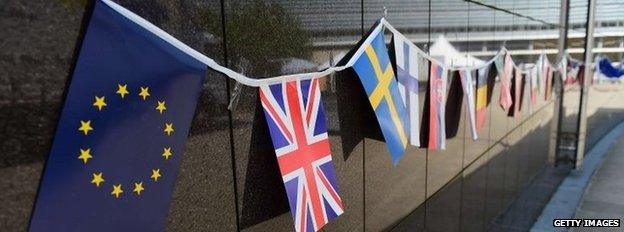
David Cameron is starting renegotiation of the terms of Britain's EU membership ahead of a referendum. Here is some further reading on what it all means:
Q&A: The UK's planned EU referendum
UK and the EU: Better off out or in?

The European Commission has appointed a senior British official to head a new Brussels task force to handle issues relating to the UK referendum, which will begin its work on 1 September.
Jonathan Faull, who has worked in the commission for more than 30 years, will report directly to Commission President Jean-Claude Juncker.
The UK has opted out of a planned quota system to deal with with the Mediterranean migrant crisis.
Former Labour home secretary David Blunkett said that if Mr Cameron wanted to gain support for his EU reforms, he needed to "win friends".
He told BBC Radio 4's Today programme: "To win friends he is going to have to cooperate in some way with the wider issue of immigration coming from outside the EU."
- Published25 June 2015
- Published25 June 2015
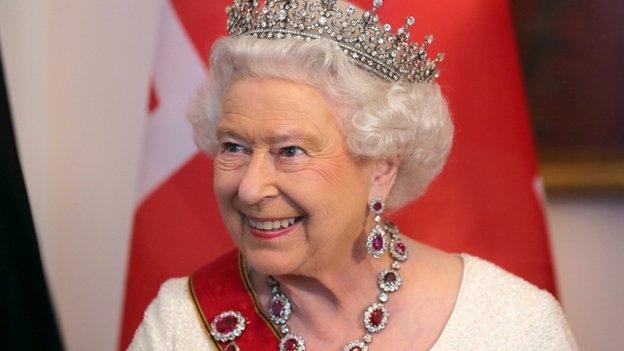
- Published24 June 2015
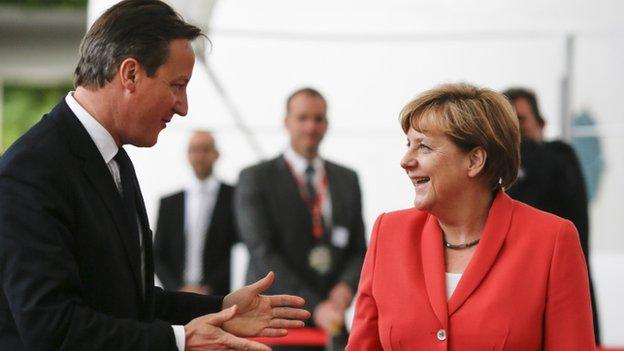
- Published24 June 2015
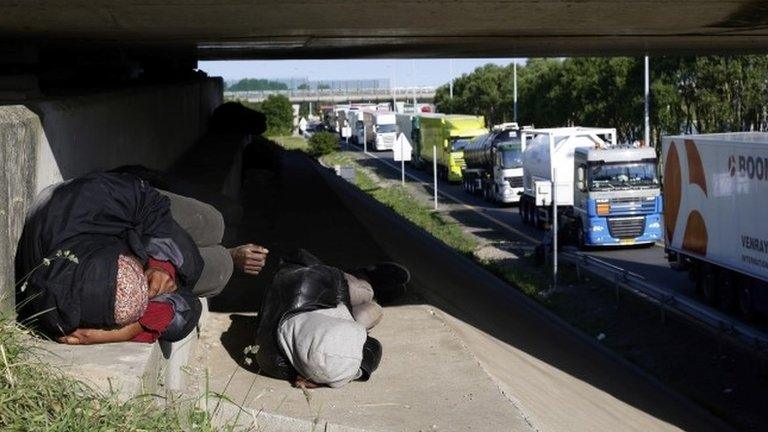
- Published16 June 2015
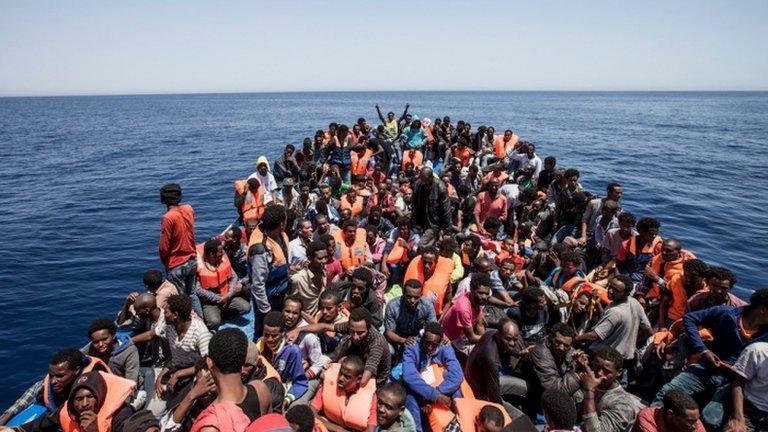
- Published19 June 2015
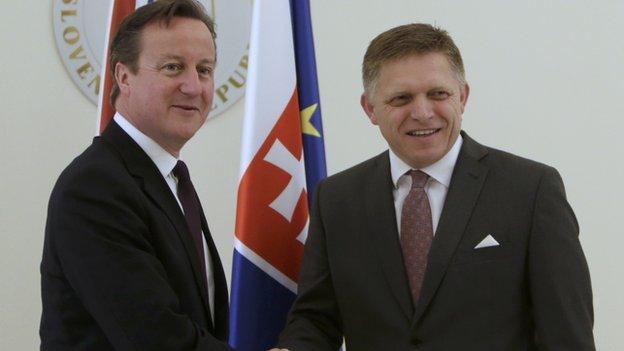
- Published18 June 2015
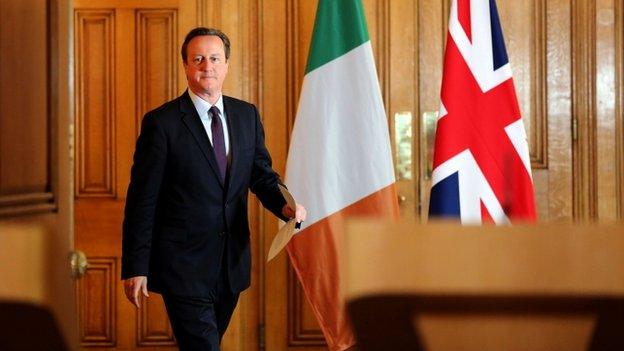
- Published23 January 2013
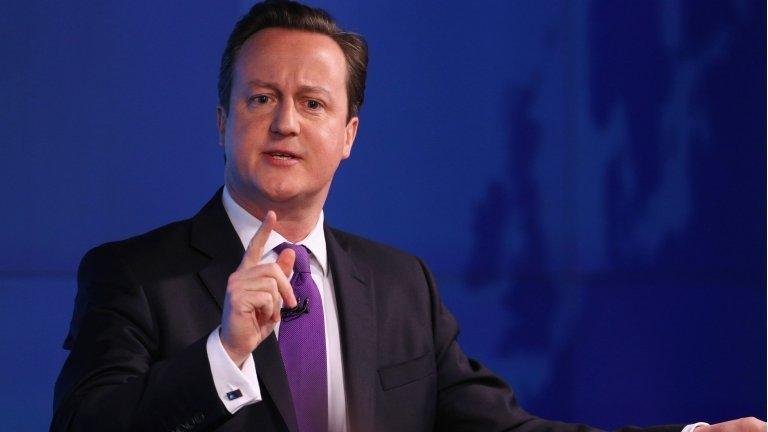
- Published24 May 2015
